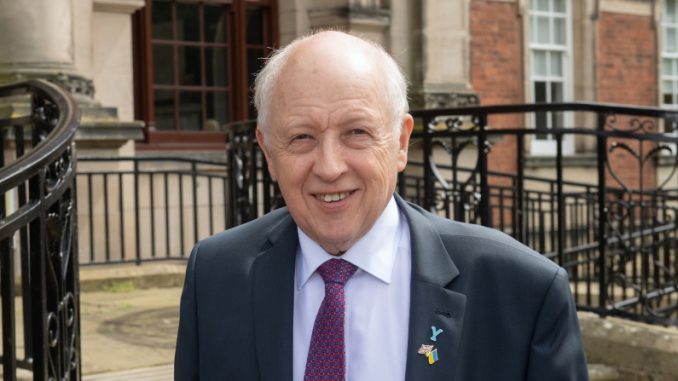
Conservative leaders running an authority with a thin majority have dismissed claims they are attempting to “stifle democracy” by banning residents who cannot attend their weekday daytime committee meetings from having their questions about key publicly-funded services read out.
North Yorkshire Council’s leader Councillor Carl Les said the move had been proposed by a cross-party group of elected members earlier this month and was designed to prevent council meetings becoming overwhelmed with questions, impeding debates and council business on the agendas.
Coun Les was speaking after the new unitary authority’s executive pushed forward a series of changes to its constitution earlier this week, including banning questions from residents unless they attended meetings, which are all held from Monday to Friday and during conventional working hours.
The cross-party group of councillors had considered whether the discretion of the meeting’s chair to allow questions to be read out in the questioner’s absence should be removed.
The group has proposed that unless there was an exceptional reason, such as a disability, any member of the public wishing to ask a question should attend the meeting or send a representative to do so.
Failure to do so would mean the question not being read at the meeting, however a written response from council officers would be provided.
The group also felt that meeting chairs should be able to handle the 30-minute public question time at the start of meetings “in their absolute discretion”.
The proposals, to be put before a full meeting of the authority next month, follows criticism that reducing the number of councillors in the county from more than 319 to 90 in forming the unitary council had produced “a democratic deficit” for communities across England’s largest county.
The criticism follows the administration facing fierce opposition to setting a time limit on councillors’ questions to the council’s executive members at the quarterly full meetings of the authority, the only opportunity in which elected community representatives can raise issues before all their counterparts.
Liberal Democrat councillor Steve Mason said the proposals to be put before a full meeting of the authority next month were “deeply concerning”.
He said: “Over the past two years we have seen democracy and community engagement attacked and blocked again and again with local government reform.
“There is a growing mistrust of underhand tactics which undermine basic British democratic values. Opposition councillors have already been censored, now they are going after the public rights as well.”
Independent group leader on the authority, Councillor Stuart Parsons added: “This is yet another attempt to stifle democracy and limit legitimate scrutiny at North Yorkshire Council.
“It also show that the Conservatives have failed to understand that people have busy lives and are not always available at 10am. Perhaps if North Yorkshire Council held its’ meeting at times suitable for the public then more people would be able to attend.”
The administration, which after seeing its narrow overall majority slip away has merged with three Independent members to form a Conservatives and Independents ruling group, claimed setting a time limit was necessary to ensure the council’s business would not be impeded by endless questions.
Coun Les said: “It is a bit disingenuous to say it is the executive driving this through. What we are doing is acting what the cross-party group has spent some time talking through and coming up with a majority, if not unanimous view.
“Certainly we are not against members of the public speaking at committees.”
When asked if he was concerned many members of the public could struggle to attend the weekday meetings, Coun Les said the objectors had raised “a valid point”.
He added: “The counter point is you could then have a lot of written questions to any meeting and it might get difficult to manage.
“If you had 100 people writing in with a question the committee would only ever spend its time talking about the questions that have been put by absentee members of the public.”


Be the first to comment